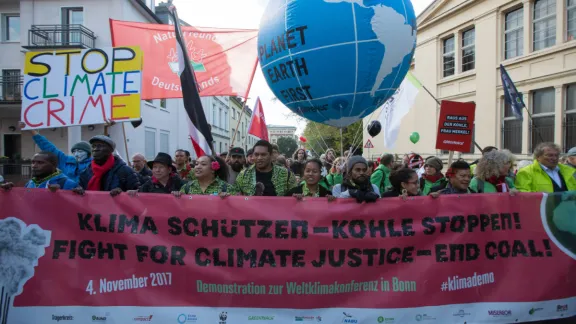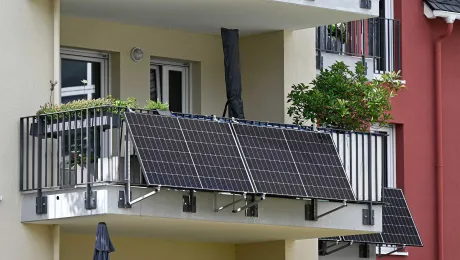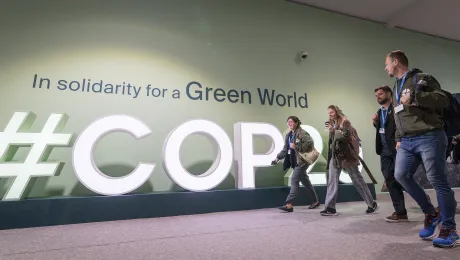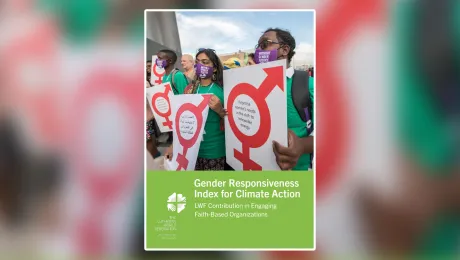
Thousands of climate activists from across the world took to the streets of Bonn just before the start of the UN climate conference COP23. Photo: WCC/Sean Hawkey
LWF youth delegation at COP23 in Bonn, Germany
(LWI) – “Through the continued engagement of The Lutheran World Federation (LWF) in this priority area we aim to raise new climate leaders and support member churches engagement for climate justice,” says LWF Youth Secretary Caroline Bader about the goal of the delegation participating in the COP23 meeting in Bonn, Germany. “We take up the Assembly theme ‘Creation – not for sale’ in our program and continue with our efforts after they have been recognized and encouraged during the LWF Twelfth Assembly in Namibia.”
With around 25,000 expected international diplomats and politicians from 190 countries as well as delegates, activists and representatives of NGOs and civil society Bonn will be a hub of activity from 6 to 17 November when the UN Climate Change Conference 2017 will take place. The LWF is participating with a delegation comprising eleven young adults from the European and Asia/Pacific member churches, accompanied by Caroline Bader.
Continued efforts for climate justice
Since 2011, the LWF regularly sends a delegation of young Lutherans to officially represent the LWF at the annual Conference of Parties (COP) of the United Nations Framework on Climate Change (UNFCCC). For this year’s UN Conference of Parties on Climate Change the LWF delegation will join hands with ecumenical partners such as ACT Alliance, World Council of Churches, Bread for the World and the Worldwide YMCA.
“Since the COP23 presidency is held by the Republic of Fiji and the meeting is hosted by the UNFCCC secretariat in Bonn, we want to focus and strengthen both, the Asia/Pacific and the European churches,” says Bader. Five delegates hail from the Asia/Pacific region, five from the three European regions and one from the Africa region. In their churches and communities at home, all delegates are already engaged in climate projects and advocating for climate justice.
Taking a stand for the most vulnerable
Most of the discussions at the COP center around political, economic or technical issues. “Our special emphasis as a faith based organization is to responsible stewardship of creation and to take a stand for the most climate-vulnerable communities,” says Bader and points out agreements such as the Warsaw International Mechanism for Loss and Damage associated with Climate Change Impacts (WIM). In addition, she says “we ask for intergenerational justice and equity in the climate negotiations, as mentioned but not yet further defined in the 2015 Paris Agreement”.
Breaking down the overwhelming information at such conferences to encouraging action at grass roots level, the hashtag #WhatChurchesCanDo is used to communicate ideas and share successful initiatives. The delegation will also offer live-streams of its climate training and a meeting with the delegates to share first-hand from COP23.
Bader is convinced that “LWF delegates will strengthen their ecumenical and interfaith networks and take home to their churches new ideas and action plans to contribute to the global and local climate justice efforts.”


